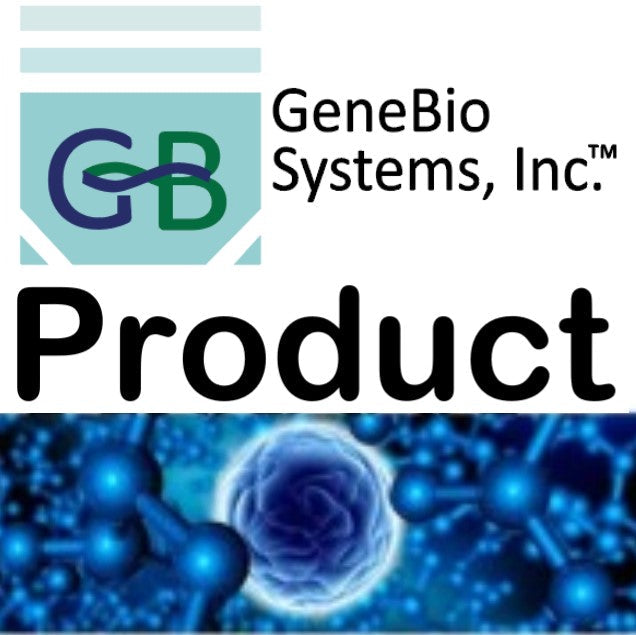Gene Bio Systems
Recombinant Human Bifunctional polynucleotide phosphatase-kinase(PNKP)
Recombinant Human Bifunctional polynucleotide phosphatase-kinase(PNKP)
SKU:CSB-EP857031HU
Couldn't load pickup availability
Size: 200ug. Other sizes are also available. Please Inquire.
In Stock: No
Lead time: 10-20 working days
Research Topic: Epigenetics and Nuclear Signaling
Uniprot ID: Q96T60
Gene Names: PNKP
Organism: Homo sapiens (Human)
AA Sequence: MGEVEAPGRLWLESPPGGAPPIFLPSDGQALVLGRGPLTQVTDRKCSRTQVELVADPETRTVAVKQLGVNPSTTGTQELKPGLEGSLGVGDTLYLVNGLHPLTLRWEETRTPESQPDTPPGTPLVSQDEKRDAELPKKRMRKSNPGWENLEKLLVFTAAGVKPQGKVAGFDLDGTLITTRSGKVFPTGPSDWRILYPEIPRKLRELEAEGYKLVIFTNQMSIGRGKLPAEEFKAKVEAVVEKLGVPFQVLVATHAGLYRKPVTGMWDHLQEQANDGTPISIGDSIFVGDAAGRPANWAPGRKKKDFSCADRLFALNLGLPFATPEEFFLKWPAAGFELPAFDPRTVSRSGPLCLPESRALLSASPEVVVAVGFPGAGKSTFLKKHLVSAGYVHVNRDTLGSWQRCVTTCETALKQGKRVAIDNTNPDAASRARYVQCARAAGVPCRCFLFTATLEQARHNNRFREMTDSSHIPVSDMVMYGYRKQFEAPTLAEGFSAILEIPFRLWVEPRLGRLYCQFSEG
Expression Region: 1-521aa
Sequence Info: Full Length
Source: E.coli
Tag Info: N-terminal 6xHis-SUMO-tagged
MW: 73.1 kDa
Alternative Name(s): DNA 5'-kinase/3'-phosphatasePolynucleotide kinase-3'-phosphatase 2 domains:Polynucleotide 3'-phosphatase (EC:3.1.3.32) ;2'(3')-polynucleotidasePolynucleotide 5'-hydroxyl-kinase (EC:2.7.1.78)
Relevance: Plays a key role in the repair of DNA damage, functioning as part of both the non-homologous end-joining (NHEJ) and base excision repair (BER) pathways. Through its two catalytic activities, PNK ensures that DNA termini are compatible with extension and ligation by either roving 3'-phosphates from, or by phosphorylating 5'-hydroxyl groups on, the ribose sugar of the DNA backbone.
Reference: Molecular cloning of the human gene, PNKP, encoding a polynucleotide kinase 3'-phosphatase and evidence for its role in repair of DNA strand breaks caused by oxidative damage.Jilani A., Ramotar D., Slack C., Ong C., Yang X.M., Scherer S.W., Lasko D.D.J. Biol. Chem. 274:24176-24186(1999)
Purity: Greater than 90% as determined by SDS-PAGE.
Storage Buffer: Tris-based buffer,50% glycerol
Storage: The shelf life is related to many factors, storage state, buffer ingredients, storage temperature and the stability of the protein itself. Generally, the shelf life of liquid form is 6 months at -20℃/-80℃. The shelf life of lyophilized form is 12 months at -20℃/-80℃.
Notes: Repeated freezing and thawing is not recommended. Store working aliquots at 4℃ for up to one week.


